
FUSTY FEET
The same bacteria used to ripen strongsmelling cheeses are also found on stinky feet.
Take a sniff - what do you smell? Perhaps Tit's some delicious dinner cooking, freshly cut grass or fragrant flowers. You might also catch a whiff of your pet pooch's pongy poo, your dad's terrible trumps, or even your sibling's stinky feet. Ewwwwww! Stinky smells can strike at any time and, thanks to evolution (the process by which living things develop), your nose knows when it smells something bad.
There's no shortage of nasty niffs out there.Animals use their stench for lots of different reasons. Skunks squirt an unpleasant liquid when they feel threatened, bears rub their scent on trees to mark their territory, and male musk oxen give off a strong pong to attract females. Humans are no better, with our armpits, cheesy feet and bad bums, but why do certain odours smell so horrid anyway? Let's get to the bottom of this stinky science and find out why it's important for survival?
What is smell?
The parts of your body responsible for your sense of smell are called the olfactory system. It evolved around 700 million years ago in fishy creatures called lancelets. These creatures are the most distantly related animals that share similar olfactory (smell) genes to humans. Genes are coded sequences of DNA, a chemical that carries all the information about a species. They contain the instructions for how an individual creature develops and grows. Lancelets had about 40 genes relating to smell (humans have about 390) and may have been able to turn their whole body into a nose to pick up scents in the water surrounding them. This eventually evolved into the system you have today, but how does it work?
この記事は The Week Junior Science+Nature UK の Issue 74 版に掲載されています。
7 日間の Magzter GOLD 無料トライアルを開始して、何千もの厳選されたプレミアム ストーリー、9,000 以上の雑誌や新聞にアクセスしてください。
すでに購読者です ? サインイン
この記事は The Week Junior Science+Nature UK の Issue 74 版に掲載されています。
7 日間の Magzter GOLD 無料トライアルを開始して、何千もの厳選されたプレミアム ストーリー、9,000 以上の雑誌や新聞にアクセスしてください。
すでに購読者です? サインイン
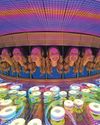
Camera Obscura
Imagine stepping inside a dark room, where the only source of light comes through one small hole in the wall.

MANCHESTER SCIENCE FESTIVAL
From 18-27 October, shoppers at the Arndale shopping centre in Manchester, England, will face a giant spider.

Should musicians stop touring?
Multiple concerts travelling around the world have a big impact on the environment.
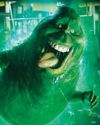
Are ghosts real?
Plenty of people believe in ghosts, but it's hard to find proof.

SMASH STEREOTYPES
In an extract from his prize-winning book, scientist and writer Adam Rutherford shows you how to use the power of science to fight racism. This chapter, titled Myth-Busting, is all about sport.

Animal awareness
What would it feel like to be another animal?

Hamza Yassin
Go behind the camera with a wildlife filmmaker.
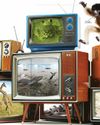
WILDLIFE WATCH
Ben Hoare goes on a safari from his sofa to discover how nature documentaries are made.
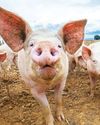
Big bum breakthrough
A team of researchers who found out that mammals can breathe through their bottoms have won a prize at the lg Nobel awards.
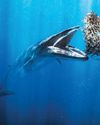
A jaw-dropping undersea snap
A photograph of a Bryde's whale feeding on a heart-shaped \"bait ball\" of sardines has won the Ocean Photographer of the Year contest.